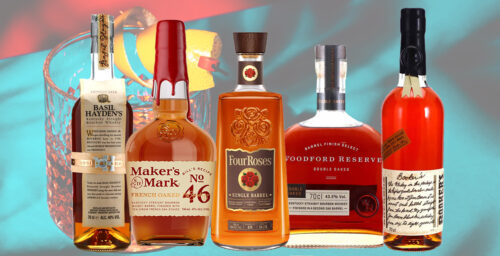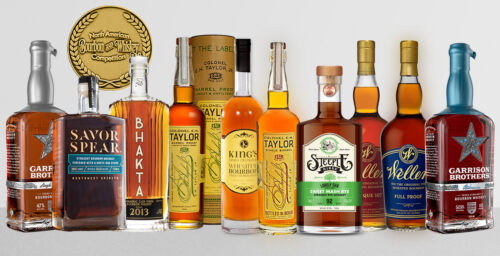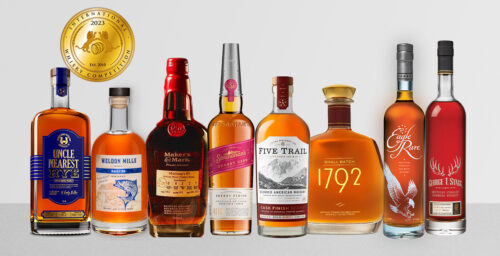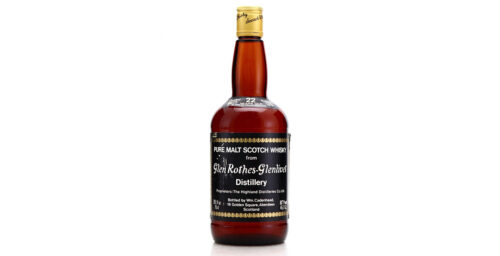If you want to think, drink and talk like a whiskey like a pro, take this tip: Rely less on subjective reviews and more on personal experience for your education.
Reviewer’s palates are like yours: one of a kind; perhaps refined but still not yours. What you like, they may not, yet those differences should be celebrated, never denigrated as often happens. Believing everything reviewers say about how a whiskey tastes or smells is risky because they could be wrong, or more likely, your mileage will vary. Other times they just write crazy!
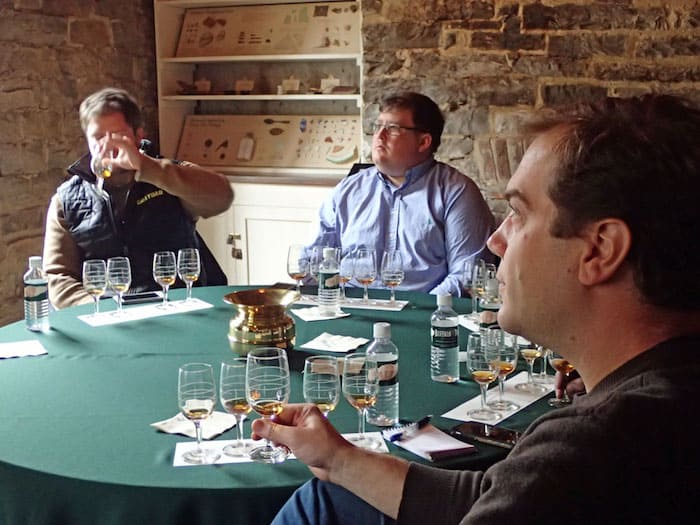
When I read one reviewer who claimed a certain whiskey smelled of goat urine, I thought, “Really? You’re so experienced with goat urine that you can liken it to what’s in your glass?” Some other reviewers just try too hard to impress the reader. Their work runs like a list of adjectives lifted from product tags at Yankee Candle. And just like visiting Yankee Candle, my head aches after the experience.
The truth is, you learn a lot more about whiskeys over time, through tasting correctly, making notes and repeating that cycle.
The basics in 4 steps
- Use proper glassware. I like three types:
- The standard narrow Glencairn Glass is well suited for most spirits, especially lower proof ones. It focuses aromas directly into the nose.
- The wider Glencairn Canadian Glass is also a fave for nosing high-proof spirits since it doesn’t direct all the spirit’s vapors directly toward the nose. Its wider base also increases the amount of air mingling with the spirit, which softens the alcohol burn.
- The NEAT Glass is much shorter than the comparable Glencairn, but it’s wide bowl is similar, and it also helps dissipate alcohol vapors. It’s also the increasingly common choice in spirits competitions.
- Once poured, let your whiskey rest and open up for 10 minutes. While it’s resting, wash your hands with odor-free soap to remove any unwanted odors.
- Swirl the spirit to “open it up” a bit, place your nose near the glass’s rim and inhale through your mouth, not your nose. Take your time with this and write down the aromas you notice—even if those ideas seem weird (more on that below).
- Sip the spirit, roll it around your palate to coat it and swallow slowly to judge the finish. And again, write down your findings.
Hydrate before tasting
A fully hydrated body ensures a viscous palate that comingles saliva with whiskey easily and flavorfully. Dry mouths are less sensitive to whiskeys’ nuances.
Believe your own nose and palate
If all you get from a whiskey is caramel, vanilla and citrus, trust that you’re on the right track to learning much more. Searching for obscure notes of lilac and horehound candy—just because pros say they’re in there—is productive only if you know what those smell and taste like. Trust yourself and continue asking, “What else do I really taste in this?”
Taste and discuss with others
When at a table with whiskey friends, it’s educational to hear their remarks about a shared bottle. People are more honest when tasting in a group, which invites fun conversation. People get it when someone smells dried grain or smoke or butterscotch because most understand those aromas, but friends also are intrigued when a trusted friend mentions something unusual. Disagreement also is often good among friends.
Most palates aren’t ‘gifted,’ they’re trained
Friends sometimes tell me I have “a gifted palate,” but I don’t agree. I do have an open palate that loves a wide range of food and drink, but gaining the ability to breakdown the micro-attributes of taste, texture and viscosity of both happened over years with guidance from chefs and wine wonks in restaurants where I worked. Even better, those experiences were repeated daily. I learned in wine tastings that an over-oaked wine does smell like an old attic and that it’s OK to say that out loud because someone else might say it smells like old socks.
Plus, after 25 years of food writing before getting into spirits reviewing, I was comfortable around other spirits professionals and enthusiasts who were similarly experienced. I wasn’t afraid to say a whiskey smelled like the contents of an old filing cabinet because, to me, it did, and I knew why it did.
Bottom line: Find whiskey experts and enthusiasts and hang around with them. Listen to what they say, consider those opinions for yourself and be confident in your own. And, of course, try lots and lots of different bottles. Nothing adds to your knowledge base more than your own experiences.

